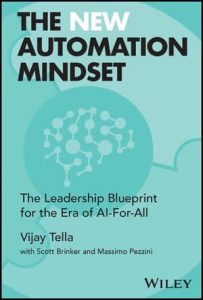
A recruiter can be a valuable asset in your search for a new job. They have an immense network, access to desirable openings, and a vast knowledge of the job market. If you are ready to move in that direction, you may find yourself wondering where to look to find your perfect headhunting match. We’ve consulted with some top-notch recruiters to help you discover and build a relationship with one that is right for you!
How to Start Your Search
To begin, always start with your network. “Step one in your search should focus on referrals – ask your trusted contacts for recommendations” advises Marina Byezhanova, Cofounder and Chief Headhunter of Pronexia Inc. “Post a simple update with a question on LinkedIn and build a list of names from it”
If you want to utilize your network more discreetly, try reaching out to a few members of your professional circle whose advice and counsel you trust. Laura Mazzullo, Founder and Owner of East Side Staffing, recommends approaching your request for referrals in this manner: “You should always have 1-2 professionals in your field that you call upon for networking help, to brainstorm with, and to learn from. These can be ex-colleagues, mentors, peers, industry experts… Start with them. Call them and say “Hey, I’m looking for an HR Recruiter. Who would you recommend in our space?”
What if your inquiry doesn’t lead to any names?
Without a referral, you will need to do even more digging on your own. Social media can be an excellent resource in your hunt, as you can easily discover active recruiters and size up their posts to assess if they might be someone you would mesh with personality-wise. If you like what they have to say, you are off to a good start. Laura proposes three additional ways to search for a recruiter:
- Review online job postings. “Most are posted directly by employers, but some are posted by third-party recruitment firms. You’ll start to see who is posting jobs in your field of expertise.”
- Run a specific search online. “Go on Google, or on LinkedIn and look for Recruiters in your area of expertise. Example: Live in Boston and work in Marketing? You can literally Google or type into LinkedIn’s search feature “Marketing Recruiter Boston” and you should get some results.”
- Utilize professional groups. Since groups often cast a wider net than your personal network, you may have better luck finding a recommendation here. Ask for referrals from groups that are specific to your field for the best results.
Introductions
Once you have built your list of leads, begin making contact with your top three choices. If they are from a referral, leverage the connection to make the introduction easier and more likely to be noticed. “You surely trust referrals above cold contacts and so do recruiters. LinkedIn is a wonderful tool to do just that. Ask your first-degree connections to vouch for you – short and sweet – and then take over with a follow-up message. Don’t wait; be proactive!” urges Marina.
Recruiters are bombarded with messages from job seekers so finding a way to stand out amongst the crowd is advantageous. Marina can tell you from experience what works, “Make your introductory message short and reference something specific about the person you are contacting (a LinkedIn blog of theirs that you enjoyed, a social media post that caught your eye or a specific job ad you read). Don’t sell yourself just yet – it is a premature move and something every job seeker does. Make the message about the recruiter him/herself, and you are sure to stand out from a sea of nearly identical messages.”
“Finding a top notch recruitment professional in the sea of mediocrity is no easy feat.”
-Marina Byezhanova, Pronexia Inc.
If you must make a cold contact, the same rules apply. Don’t send out form messages; they will fall flat! “My advice is to personalize communication and keep the tone polite, respectful and kind” explains Laura. The recruiter receiving your messages does not know you or your personality. “Read introductory emails aloud; ensure the tone represents your personal brand.”
It Is Your Turn to Do the Interviewing
Whom you choose to partner with will be working on your behalf, and their reputation will impact how you are perceived. Before you hand over your resume and move forward, interview them.
Marina advises you ask questions including where their office is located, what makes them stand out from other recruiters, their stance on candidate experience and, probably most important, what clients do they work with exclusively. “The biggest benefit of working with a recruiter is gaining access to clients who have a high barrier of entry. If the person you reached out to works on the same mandates as ten other recruiters, then there is absolutely no value for you in that potential partnership”. A respectable recruiter should be able to answer these questions easily, and their responses should give you insight into where they stand as a company and how you can expect to be treated. Not getting this information from the start, will only waste your time and possibly set you up for a bad experience.
Avoid Red Flags
There is no cost on the part of the job seeker to work with a recruiter. Companies task the recruiters with finding them the ideal candidate. Therefore, they are paying them, not you. If a recruiter starts out asking for any sort of payment from you, move on.
Be wary of those who over promise and seem to be without a specific industry focus. Laura points out, “Be cautious of those Recruiters who operate as a ‘jack of all trades, master of none’ because they may not fully understand what you do, what you’re looking for, or be able to provide you with constructive feedback relevant to your field.” Finding a recruiter within your niche or industry will put you in a better position to benefit from their expertise and connections.
Also keep looking if you find that you are being pressured, treated disrespectfully, or your concerns are being brushed off. Laura explains, “Like any business relationship, there has to be a match in personalities and communication styles for a relationship between a Recruiter and a Candidate to be a success…Know what you’re willing to tolerate, and walk away if you ever feel the connection is no longer working for you.”
Get Specific About What You Want
A recruiter will need to know about your experience and background to decide if they can help you with your search and if you are a match for their recruiting focus. Make sure you have a clear picture of where you’d like to see your career go and what are the key factors that matter most to you in selecting your next position.
“Build a short list of questions that are important to you and your job search…If a long commute is an obstacle, inquire about commuting times and distances. If you are looking to make a career switch because of a mediocre boss, talk about the importance of a strong leader in your career growth” counsels Marina. The more focused you are, the better a recruiter can serve you and help guide you in the right direction.
Don’t close your mind to opportunities, though. Great recruiters listen to your wants and needs and often can help you discover opportunities that might be a perfect fit that you never imagined. “Don’t be surprised if a Recruiter challenges you on your thinking; sometimes you need to see things in a fresh way” describes Laura. “Often the perfect job for you is a bit different than you initially expected; so leave a little room for openness.”
Remember, the Recruiter-Jobseeker Relationship Is a Two-Way Street
Both our experts reiterated the importance of this sentiment. Like any relationship, it is built on respect, openness, and honesty. A recruiter’s time is a hot commodity, and they are using it to help you find a great opportunity. Be a candidate they can get behind by making sure you are always prepared, provide feedback, and be open to their advice and constructive criticism. Their intention is to help you succeed and pair clients with the ideal people for their company. Hiring is their business day in and day out, have respect for their knowledge of the industry.
Want to really thank them for their help? Refer friends or endorse them on sites like LinkedIn. Stay in touch and keep them updated on your career. You never know when you might need their services or advice in the future. Show your appreciation for their support and build your partnership into a career-long relationship, not a one-night stand!
Business & Finance Articles on Business 2 Community(63)






